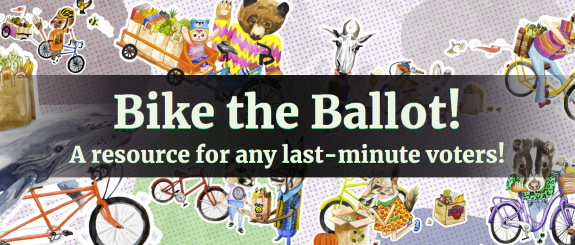Both Cascade Bicycle Club and the larger MASS Coalition (including Seattle Neighborhood Greenways and Transporation Choices Coalition among others) they are part of have action alerts out right now asking supporters to call on city leaders to limit the huge cuts in walking, biking and transit funding Mayor Jenny Durkan proposed in her 2021-22 budget. (Correction: This post erroneously said TCC is a member of the MASS Coalition. While TCC has partnered with MASS and its members in the past, they are not a member.)
Specifically, the Move All Seattle Sustainably (“MASS”) Coalition is backing the “Solidarity Budget” led by a long list of community organizations and is specifically pushing for a list of transportation budget amendments (PDF):
- Upgrade Rainier Avenue sidewalks in Southeast Seattle ($1 million)
- Continue work on the Georgetown-to-South Park Trail ($1.8 million)
- Cancel cuts to the Route 44 Multimodal Project connecting Ballard to the U-district via Phinney Ridge and Wallingford ($1 million)
- Advance planning and early design for bike network connections in South Seattle, specifically a route through the Rainier Valley (along MLK Way) and a connection between Georgetown and Downtown, via SoDo ($400,000).
The mayor’s budget levies heavier cuts to walking, biking and transit than to car-centric budget lines. Perhaps the most egregious is an increase in the so-called “Intelligent Transportation System,” investments that do nothing to help people get around outside of a car and can even make conditions for walking and biking worse. Just look at the disaster that is Mercer Street.
Safe streets projects in Seattle have been huge successes. ITS projects have been either useless or actively bad. Why would we invest in repeating our failures while slashing the budgets for our successes?
Worse, when Seattle voters passed the Move Seattle Levy in 2015, they did so based on big promises about investing in walking, biking and transit. But the city front-loaded the car-centric projects, and now the walking, biking and transit projects are exposed to budget cuts. If they don’t get funded before the levy expires, projects will fall off the end of the list. The city needs to dedicate itself to the vision voters approved and deliver big improvements for walking, biking and transit.
So while the budget is certainly going to be tighter than in previous years, cuts should obviously come from car-centric programs that don’t help us meet our climate, traffic safety and equity goals. And pointless freeway-style electronic signs are a great and very easy place to start. (more…)











